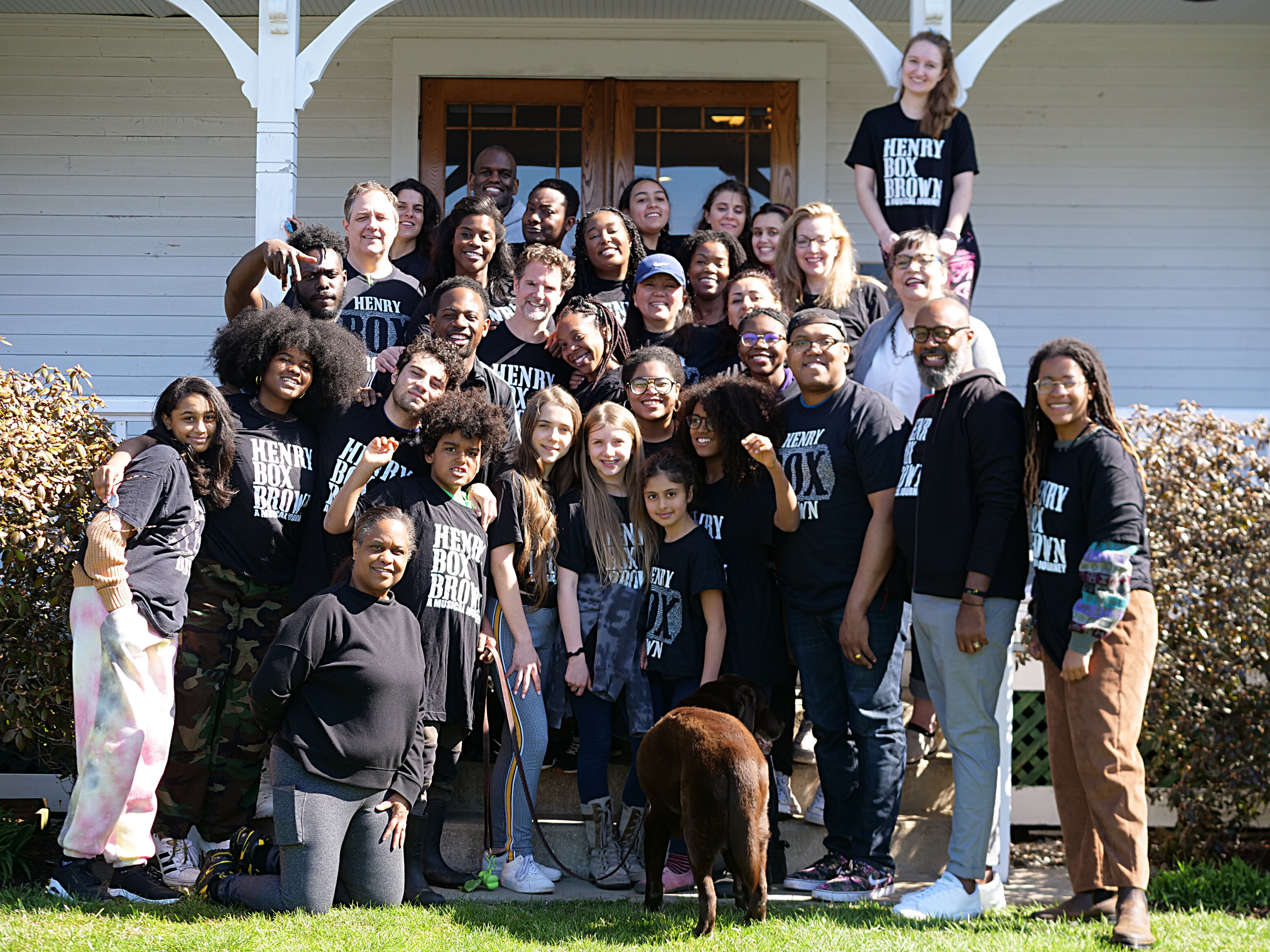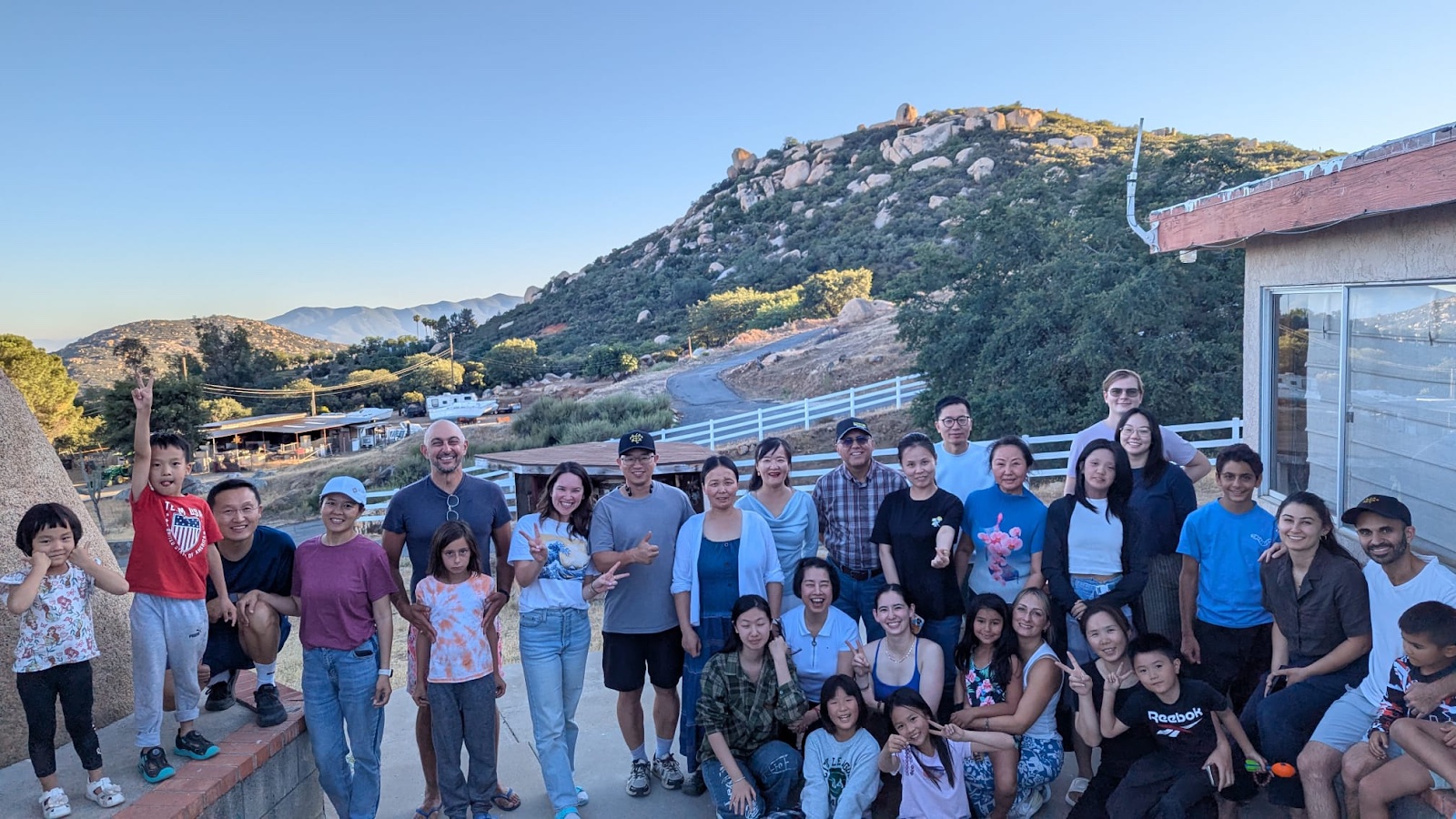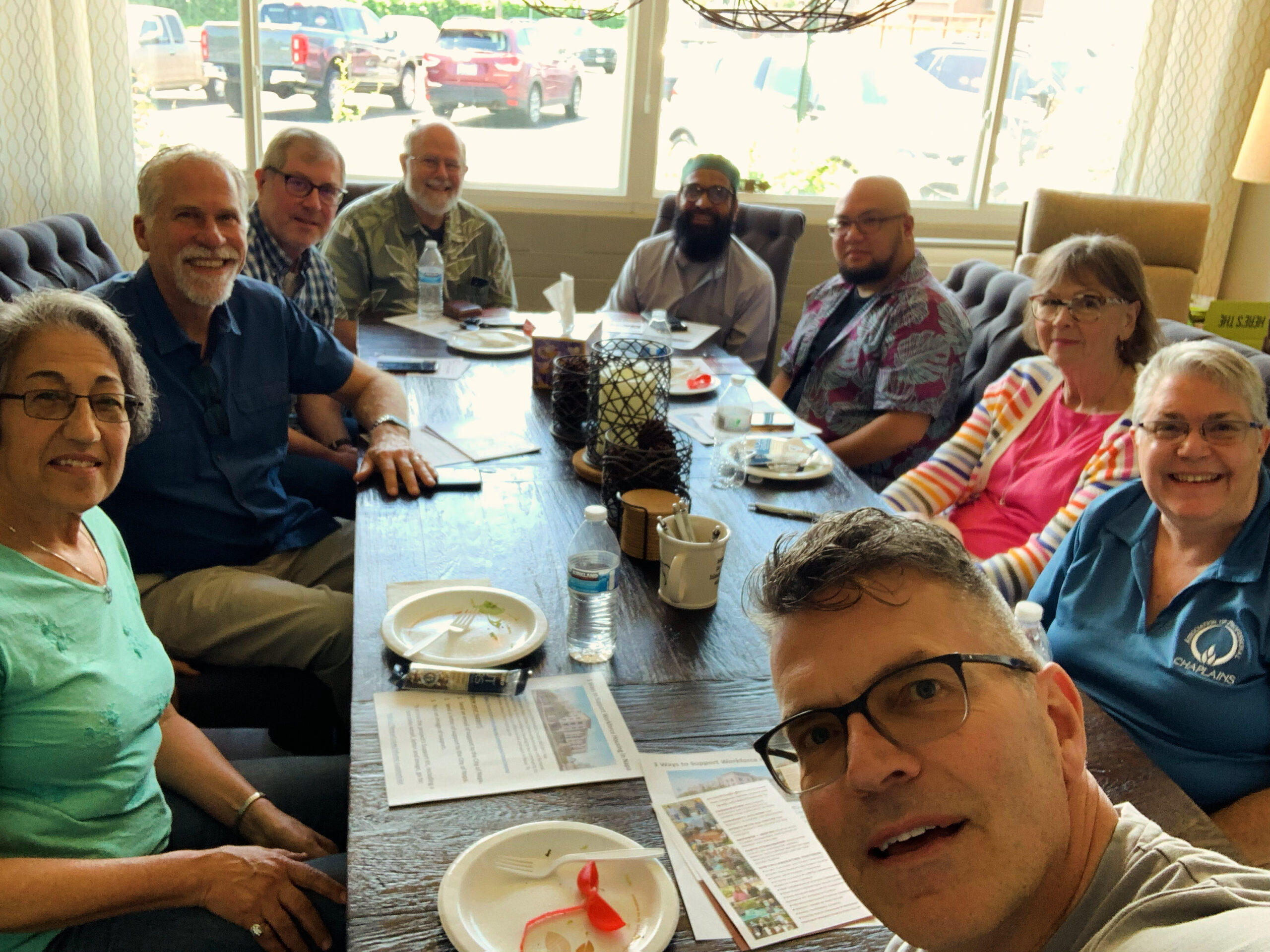
An ABS Sampler
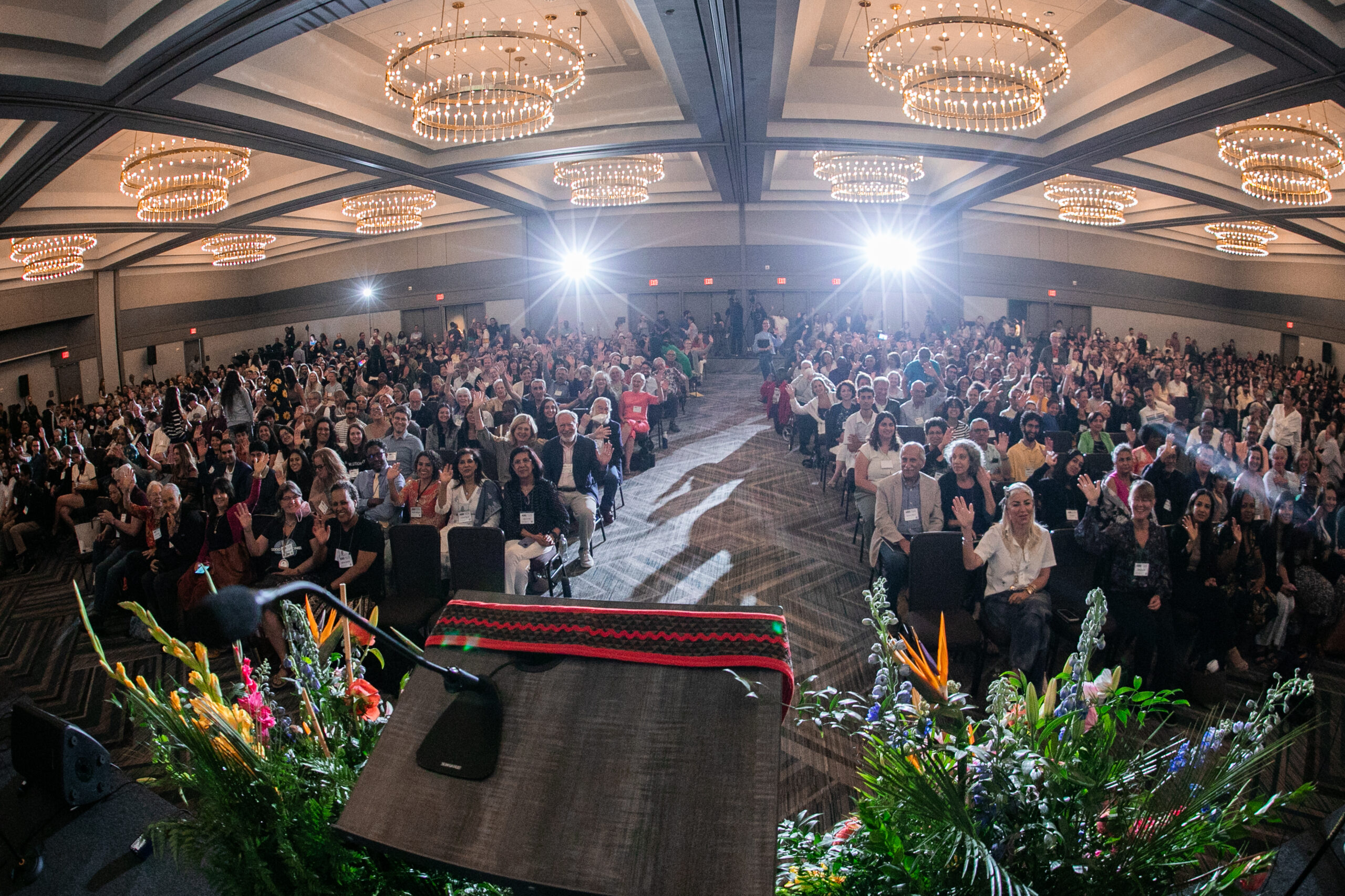
Last month, in early August, over 1900 individuals from various fields and backgrounds came together in Atlanta, Georgia, for the annual Association for Baha’i Studies (ABS) conference. This gathering provided a space for Baha’is and their collaborators to explore Baha’i teachings can be applied to some of today’s most urgent social issues.
Among the diverse sessions offered at the conference, participants were given an opportunity to delve into areas of study such as Africana Studies, Literature, Arts, History, Human Rights, and Public Health. These sessions tackled profound questions about power, culture, race, and justice, demonstrating how the Baha’i Faith can contribute to conversations shaping the future and well-being of humanity.

Africana Studies
What are the current societal conceptions of power? What is the Bahaʼi perception of power?
How do we empower others? How can we harness the transformative power of the Baha’i teachings to contribute even more effectively to the betterment of society? These were some of the questions voiced in the ABS Africana Studies seminar. To begin finding answers, the group turned to two sources: the Writings of the Baha’i Faith and the experiences of individuals involved in activism including civil rights, feminist, and reformation movements.
Twenty-five people–of African, Persian and European descent–earnestly discussed the correlation between the life and teachings of Baha’u’llah and the experiences of African Americans, particularly those who participated in the Civil Rights Movement.
They explored how the concept of power is an infinite source, and wrestled with society’s assumption that changing the material reality alone will cure problems in the world. The group discussed guidance the Universal House of Justice shared with one Local Spiritual Assembly: “the issues which you face are essentially spiritual, dealing with values, attitudes, and behavior. Hence, a spiritual solution is required.”
A subsequent question was raised: How will our communities address pain and anger resulting from society’s ills? How will we inform, temper, and transmute those feelings to become a constructive force?
“Anger is an unfulfilled request,” one group member offered. “What is it that someone is asking of me, and how are we understanding and responding? Can you tell me what you need? I may not be able to fulfill that request, but can I hear them out?” –Henry Warren
Arts
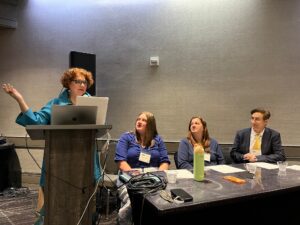
Through a constellation of Baha’i Writings, case studies and personal reflections, four panelists explored how Baha’is can more effectively draw on “the power of the arts” as encouraged by the Universal House of Justice. Through the session, “The Relationship of Art to Culture at this Critical Juncture in Human History,” panelists emphasized how art has the power to challenge established norms, invite new ways of thinking and promote awareness, growth, and social change, making it a potent tool for cultural evolution. Each panelist explored how art doesn’t exist in a vacuum, but is deeply entwined with the culture it reflects. Each highlighted how Baha’i artists and communities have a special opportunity and responsibility to use the arts in fostering community building, advancing universal education and building bonds of unity.
- Michèle Jubilee, an artist and museum educator/curator, explored the impact and power of centering spiritual principles on the culture of a museum, encouraging Baha’is to engage with local arts.
- Anne Perry, a filmmaker and educator, delved into definitions of “culture”, sharing observations on recent momentum and arts appreciation building within Baha’i gatherings.
- Taraz Samandari, a physician-scientist pursuing Baha’i inspired creative projects, unpacked how the arts are a powerful way to tell stories, and shared an example of a graphic novel he is developing inspired by Baha’i quotations and teachings.
- Chrsitina Wright, a film educator, social emotional arts facilitator and leadership development coach, highlighted how engaging in art-making has direct benefits for physical and emotional health, and its unique ability to engage, inspire, empower, and connect.
The panelists emphasized that in a world characterized by rapid change and constant connectivity, the intersection of art and culture is more important than ever, offering profound opportunities for dialogue, understanding, and transformation. Arts can be the glue that binds people together in new ways, the invitation to include diverse perspectives and voices, and the means of cultivating belonging and true bonds of friendship that advance culture, both inwardly and outwardly. –Michèle Jubilee Davey
History
Lex Musta believes in crowdsourcing historical research. “We have no priests in the [Baha’i] Faith,” he says, “so if you want to know something, you go find out. You study the Revelation and you share what you learn.” The breakout session Musta facilitated was an active demonstration of these ideas and a presentation of the Louis Gregory Across America Project, a grassroots Baha’i study of the development of race relations in the United States.
Early in his engagement with the Baha’i Faith, Musta saw a photo of Hand of the Cause Louis Gregory, at the Baha’i Center in Montreal and asked who he was. “Go and find out,” was the reply Musta received. He became enamored with documenting the life, travel and influences of this remarkable man. Louis Gregory (1874 – 1951) was a lawyer by profession who traveled widely to promote the Baha’i Faith. He was the first African American elected to the National Spiritual Assembly of the United States and Canada, and in 1951 was posthumously appointed by Shoghi Effendi as a Hand of the Cause of God, a title given to those who rendered exceptionally devoted service to the Baha’i Faith.
Despite the wide interest in his life and contributions to the Cause, many of Gregory’s travels have yet to be documented. Musta invited session attendees to sit in groups by region so they could share what they knew of Gregory’s influence in their area, and how they might further research and document what they uncover. He urged them to consider connections between clues they might find on the internet or through local archives about Gregory’s visits. The session concluded with a reflective discussion on how Gregory’s legacy can continue to be honored through active discourse. –Joyce Litoff
Human Rights
In a break-out session of about 75 people, Terry Edwards opened with several questions:
Is one human right more important than any other? Or are all human rights equally important? Are there obligations that are as important as rights? What are they? What, if anything, is spiritual about rights and obligations? Is it possible to have universal human rights?
Edwards explained that in a conversation about human rights, we can compare the United Nations’ vision of human rights with the Baha’i vision. As he guided participants through the history and tenets of the The UN Declaration of Human Rights Universal Declaration and related treaties and covenants established across the world, Edwards asked what the teachings of the Baha’i Faith might add.
One participant shared, “The Bahaʼi Faith’s perspective on human rights is based on the idea that each person is inherently noble, a spiritual being with talents and abilities given by the Creator and that the purpose of life is to realize these potentials for the benefit of both the individual and society. We need to add this fundamental assumption of who we are.”
–Henry Warren
Literature
During their presentation, writers Masud Olufani, Kim Douglas, Sharon Nesbit-Davis, and Hyacinth Wallace described the process of cultivating creative spaces to achieve true inclusivity in literary spaces through harnessing the society-building powers of the Faith that the House of Justice describes. Despite some progress, achieving this goal remains challenging. Many workshops in traditional spaces still lack diversity and fail to address issues of race and gender adequately. The panelists presented various ways to change that current reality. As a diverse group of writers, they are committed to healing and unity by authentically addressing real-life challenges in their work:
- Kim Douglas, founder of Write2Unite and author of High Desert: A Journey of Survival and Hope, co-authored Arising with Kevin Locke.
- Masud Olufani, an Atlanta-based writer and mixed media artist, has exhibited his work nationally and internationally.
- Hyacinth Wallace is the creative director of Knowetix. Sharon Nesbit-Davis, a writer, artist, and storyteller with a background in mime, is the author of the memoir Intended: A Marriage in Black and White.
The four writers shared their personal journeys, the development of their ABS group, and the pivotal role of curiosity in feedback. They emphasized the need for authenticity and truthfulness, arguing against the erasure of history and the minimization of harsh realities. Such exploration, they believe, is essential for societal progress and artistic success.
There was much conversation with audience members sharing personal examples regarding the emphasis on authenticity in both the arts and the creation of more inclusive, unified communities. The writers highlighted the importance of transforming traditional academic, educational, and religious writing spaces, which have historically marginalized people of color and women. –Kim Douglas
Public Health
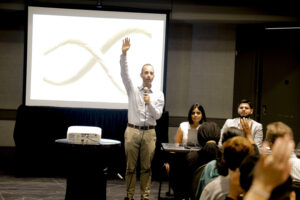
For more than three years, a group of scientists working in various facets of Public Health – medicine, community health, psychological anthropology and indigenous health – have been meeting online weekly through an ABS reading group.
Anish Arora, Yovania Dechtiar, Johnathon Ehsani and Andrew Hatala, served as speakers for the panel presentation, “Exploring the Relationship between Religion and Public Health.”
“What we’re trying to uncover in our reading group are the intellectual foundations of the culture of public health,” Hatala said. “What are some of its primary assumptions in terms of the nature of personhood? How do we understand community and the relationship between individuals? …Community and different institutions that are trying to support people’s wellness and wellbeing in different ways? There is actually a lot of literature, and a lot of people thinking about how religion and spirituality bear on some of these topics.”
The panelists said that in their professional work, sharing what the reading group was exploring created natural opportunities for elevated conversations with their colleagues. One in particular was instrumental in furthering the conversations and a modest research study ensued. The researchers identified 15 participants to engage in an interview to talk about the intersection of public health and religion.
The speakers were keen to share the process of their study: “That’s actually the bit that you don’t get in a typical scientific presentation,” said Ehsani. “People will just get up and tell you what they found, what it means, and then everyone will go home. You won’t really know how it happened, and the little sub stories and the beautiful coincidences or serendipities that happen along the way.”
Dechtiar polled the audience with the questions from the study:
What is the goal or purpose of public health?
What is the goal or purpose of religion?
Are there common threads between these two systems?
One finding: Simply doing the research project was like having a calling card for elevated conversations. –Joyce Litoff


